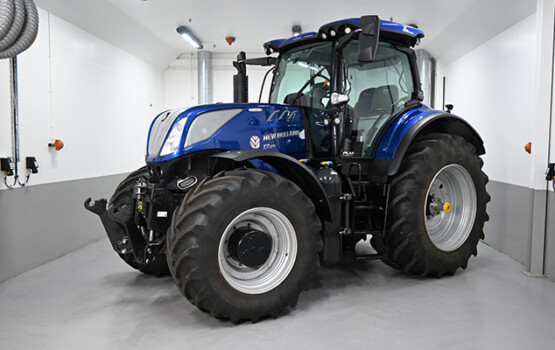Portal for more climate-friendly mobility
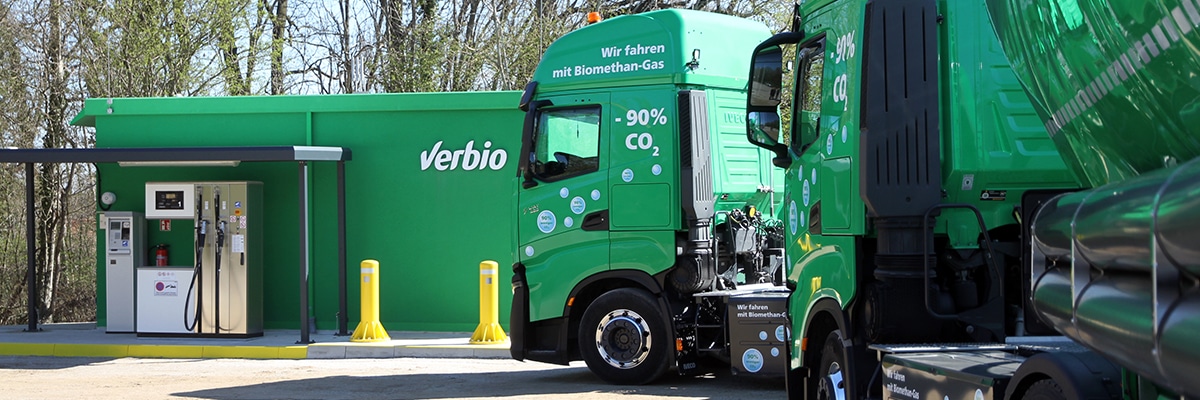
Straw biofuel for cement manufacturer
German biofuel specialist Verbio is opening its own filling stations in Germany. At least 20 biogas/bio-LNG filling stations are envisaged. This immediately benefits building materials manufacturer Heidelberg Materials. The company can now refuel its truck fleet with biogas near one of its cement plants.
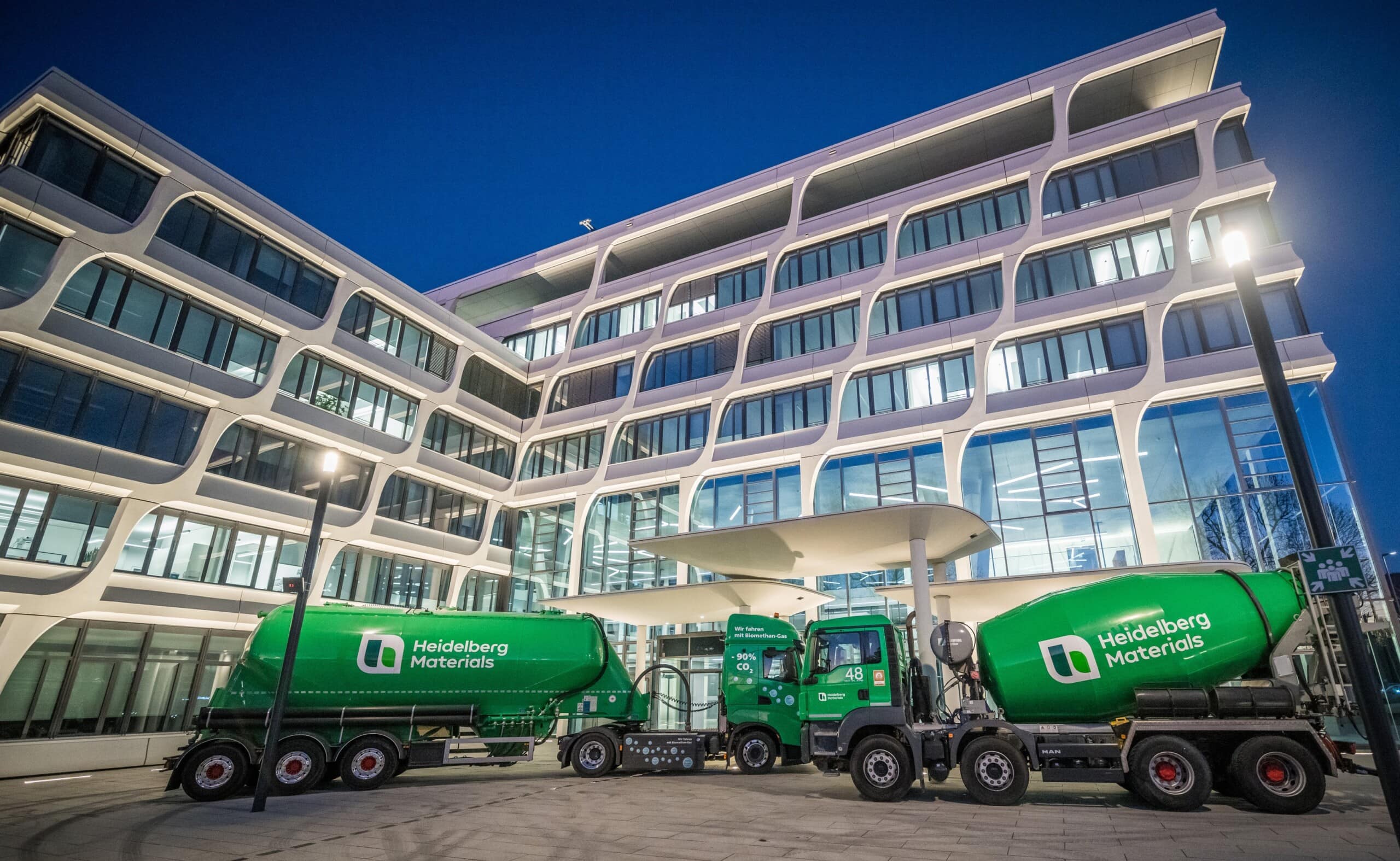 Cement manufacturer Heidelberg Materials relies on CNG-powered trucks and has now also obtained its own biogas filling station. Source: Heidelberg Materials
Cement manufacturer Heidelberg Materials relies on CNG-powered trucks and has now also obtained its own biogas filling station. Source: Heidelberg Materials
The German biofuel specialist Verbio is constantly expanding its market position – both geographically and in terms of products. CEO Claus Sauter’s company now employs around 1,000 people, is one of the leading bioenergy producers and is the only large-scale industrial producer of biodiesel, bioethanol and biogas in Europe. Verbio has now invested CHF 51.2 million in the further expansion of a biorefinery in Nevada (USA), the expansion of advanced biofuel capacities in Germany and the bio-LNG/biogas filling station network.
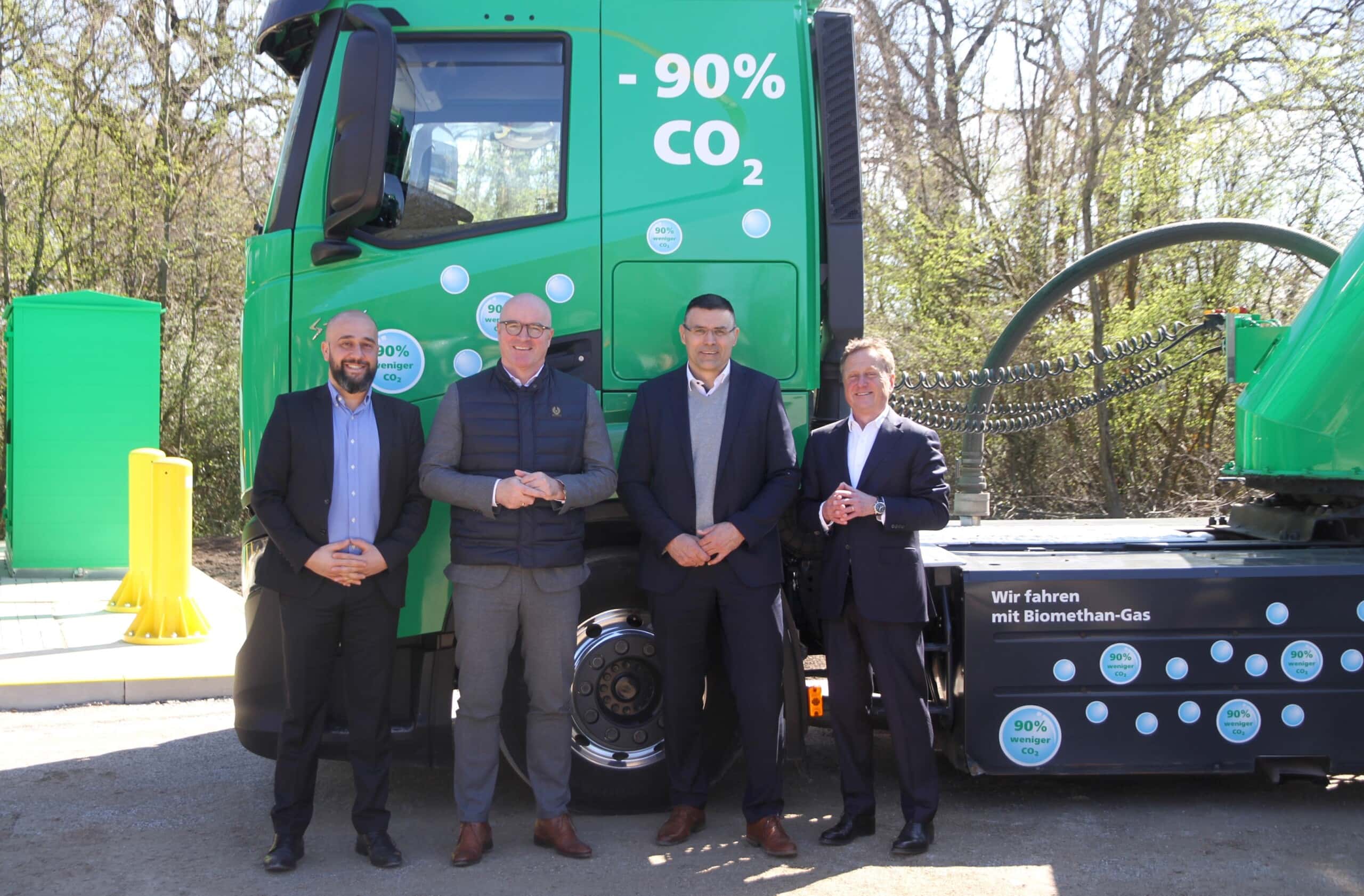 Adem Ates (Head of Biomethane Verbio), Ottmar Walter (Member of the Management Board Heidelberg Materials Germany), Silvio Günther (Head of Logistics Heidelberg Materials Germany) and Heinz-Peter Küppers (Expert BioCNG/BioLNG Verbio) at the new biogas filling station in Ennigerloh, Germany. (from left to right). Source: Verbio
Adem Ates (Head of Biomethane Verbio), Ottmar Walter (Member of the Management Board Heidelberg Materials Germany), Silvio Günther (Head of Logistics Heidelberg Materials Germany) and Heinz-Peter Küppers (Expert BioCNG/BioLNG Verbio) at the new biogas filling station in Ennigerloh, Germany. (from left to right). Source: Verbio
Heidelberg Materials is now benefitting from the latter. Working closely with Verbio, the building materials manufacturer has built a biogas filling station for its CNG trucks at its cement plant in Ennigerloh (Germany). Other freight forwarders and private users of CNG vehicles can also refuel at the new biogas filling station located in the Münsterland region around the clock. The fuel has to be paid for by card. As Heinz-Peter Küppers, sales professional for biogas and bio-LNG at Verbio, explains, “Freight forwarders and companies with their own truck fleets face major challenges in terms of improving their carbon footprint while reducing high operating costs. Our biogas from waste material and straw can do both.”
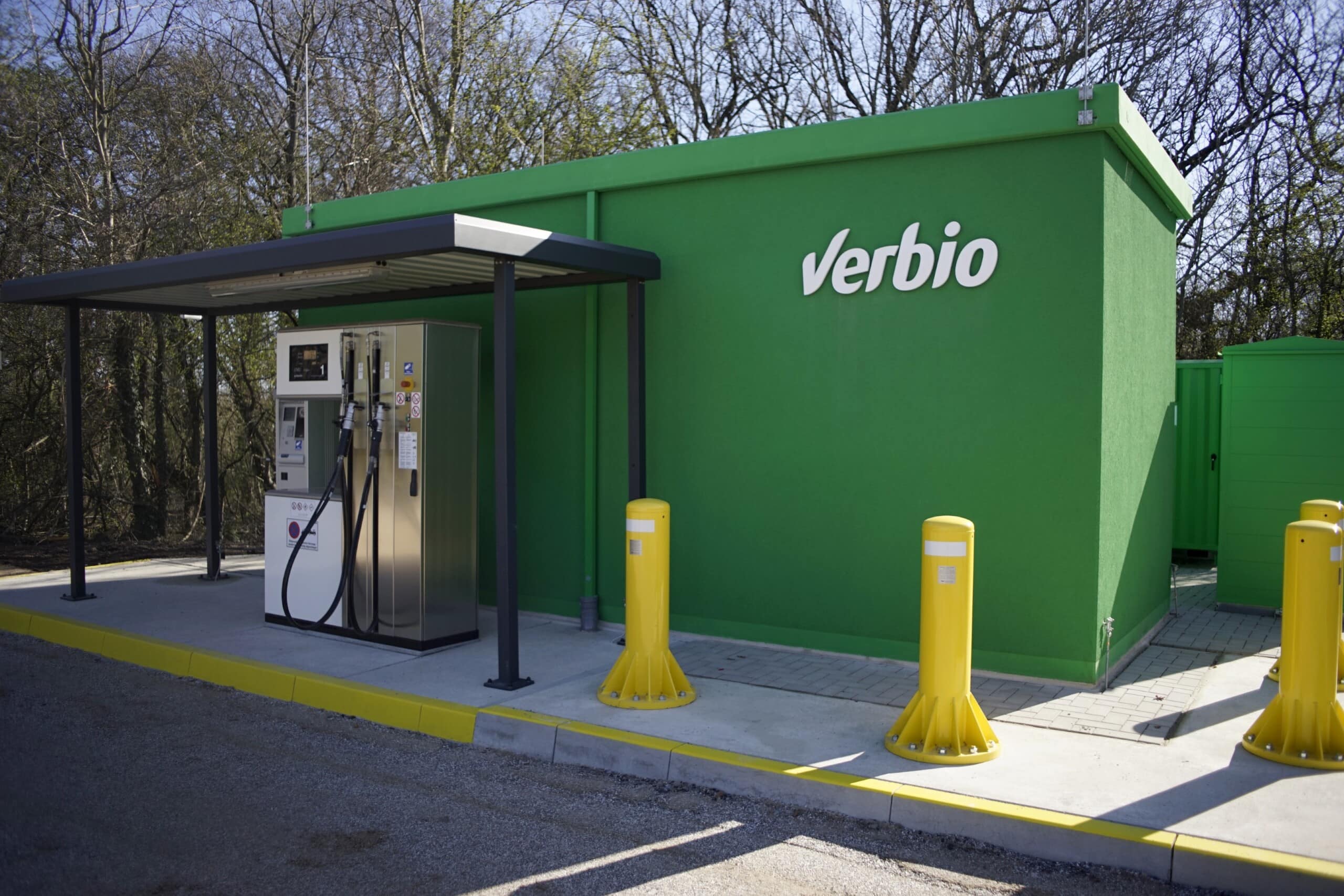 Verbio wants to build at least 20 of its own biogas/bio-LNG filling stations across Germany. Source: Verbio
Verbio wants to build at least 20 of its own biogas/bio-LNG filling stations across Germany. Source: Verbio
Biogas is a true alternative to fossil fuel, especially in road haulage and allows even large vehicles to be virtually carbon neutral. “Over the next ten to fifteen years, e-mobility will not offer a viable solution for the logistics sector in heavy-duty and long-distance transport, and other technologies are still far from viable in terms of practicality and cost-effectiveness,” explains Küppers at the opening of the filling station. “A CNG-powered truck has a range of around 500 to 600 kilometres between two refuelling stops and can be refuelled with biogas easily, quickly and significantly cheaper across Germany than with fossil diesel.”
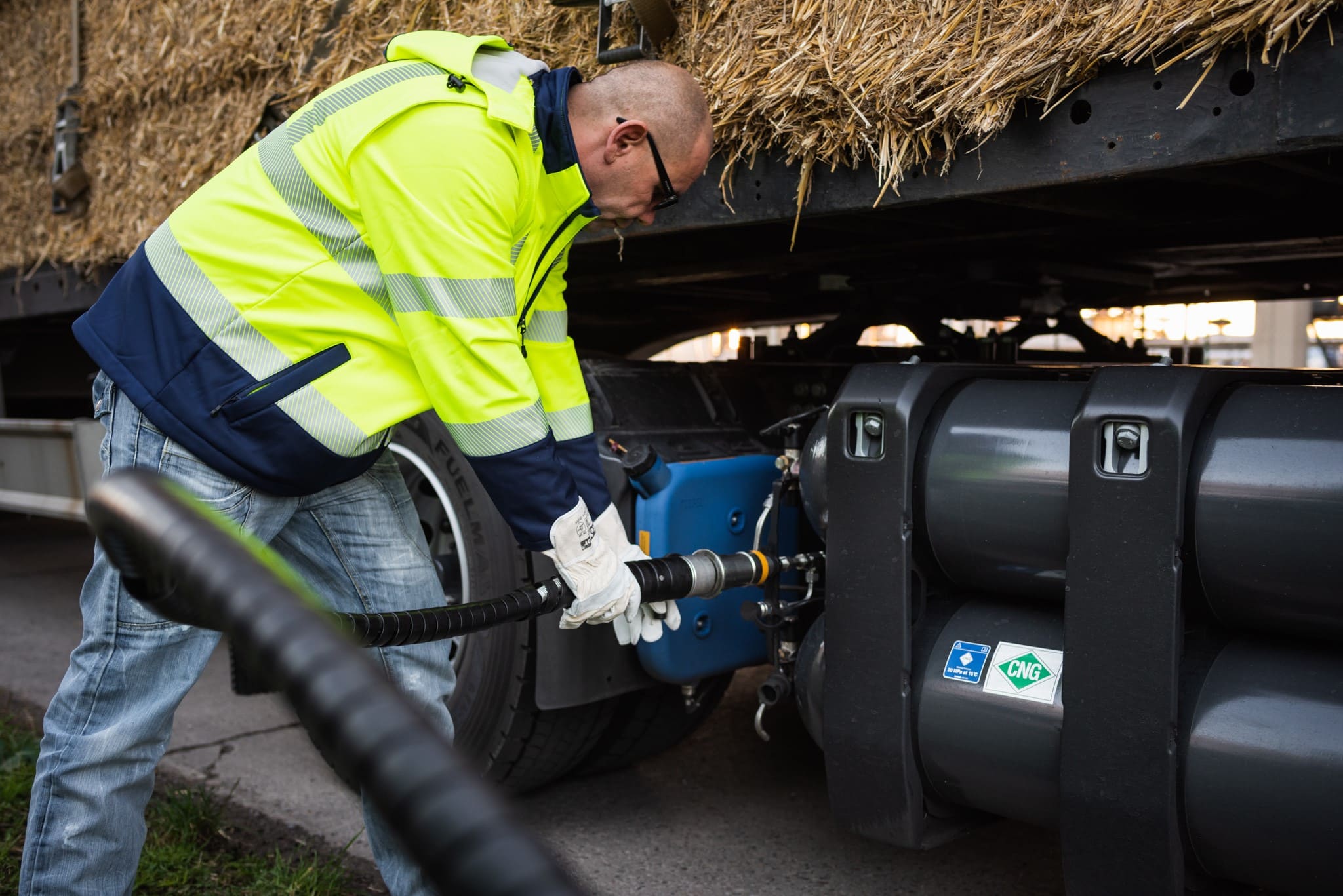 Thanks to biogas or even liquefied biogas (Bio-LNG/LBG) in the tank, even large trucks are almost CO2-neutral on the road. Source: Verbio
Thanks to biogas or even liquefied biogas (Bio-LNG/LBG) in the tank, even large trucks are almost CO2-neutral on the road. Source: Verbio
Bio-LNG/LBG, i.e. liquefied biogas, offers an additional range advantage thanks to its higher energy density. “With a full tank of fuel, you can reach a range of up to 1,200 kilometres. This allows biofuel to compete fully with a classic diesel truck in this respect,” adds Heinz-Peter Küppers. “In order to support freight forwarders and industrial partners in converting their fleets, we not only supply the fuel but also invest in tank infrastructure nationwide.” For this reason, Verbio is currently planning to build at least 20 of its own biogas/bio-LNG filling stations throughout Germany.
The cement manufacturer Heidelberg Materials, which has set itself the goal of delivering climate-neutral concrete by 2050 at the latest, now has straw in the tanks of its ten CNG-powered trucks. “As a pioneer on the road to carbon neutrality in the building materials industry, we are working on sustainable building materials and solutions for the future. That’s why we have already purchased ten silo trucks with CNG drives for our factory logistics, which we will now be filling with biogas from Verbio,” explains Silvio Günther, Head of Logistics at Heidelberg Materials Germany.
 The head of Verbio, Claus Sauter, has been a strong advocate for the use of biofuels for years and is steadily expanding his company. Source: Verbio
The head of Verbio, Claus Sauter, has been a strong advocate for the use of biofuels for years and is steadily expanding his company. Source: Verbio
In Germany, Verbio’s biogas is produced exclusively from agricultural residues and straw in three large-scale plants in Saxony-Anhalt and Brandenburg. The company operates other production facilities of this type in the USA and India. Verbio technology results in CO2 reductions of up to 90% compared to the use of petrol or diesel. The Verbio plants currently produce around 660,000 tonnes of biodiesel, 300,000 tonnes of bioethanol and around 1,300 gigawatt-hours of biogas per year. The manufacturing of biofuels also produces organic fertilisers and animal feed for use in agriculture as well as high-quality raw materials for the pharmaceutical, cosmetics and food industries. (jas, 20 April 2023)
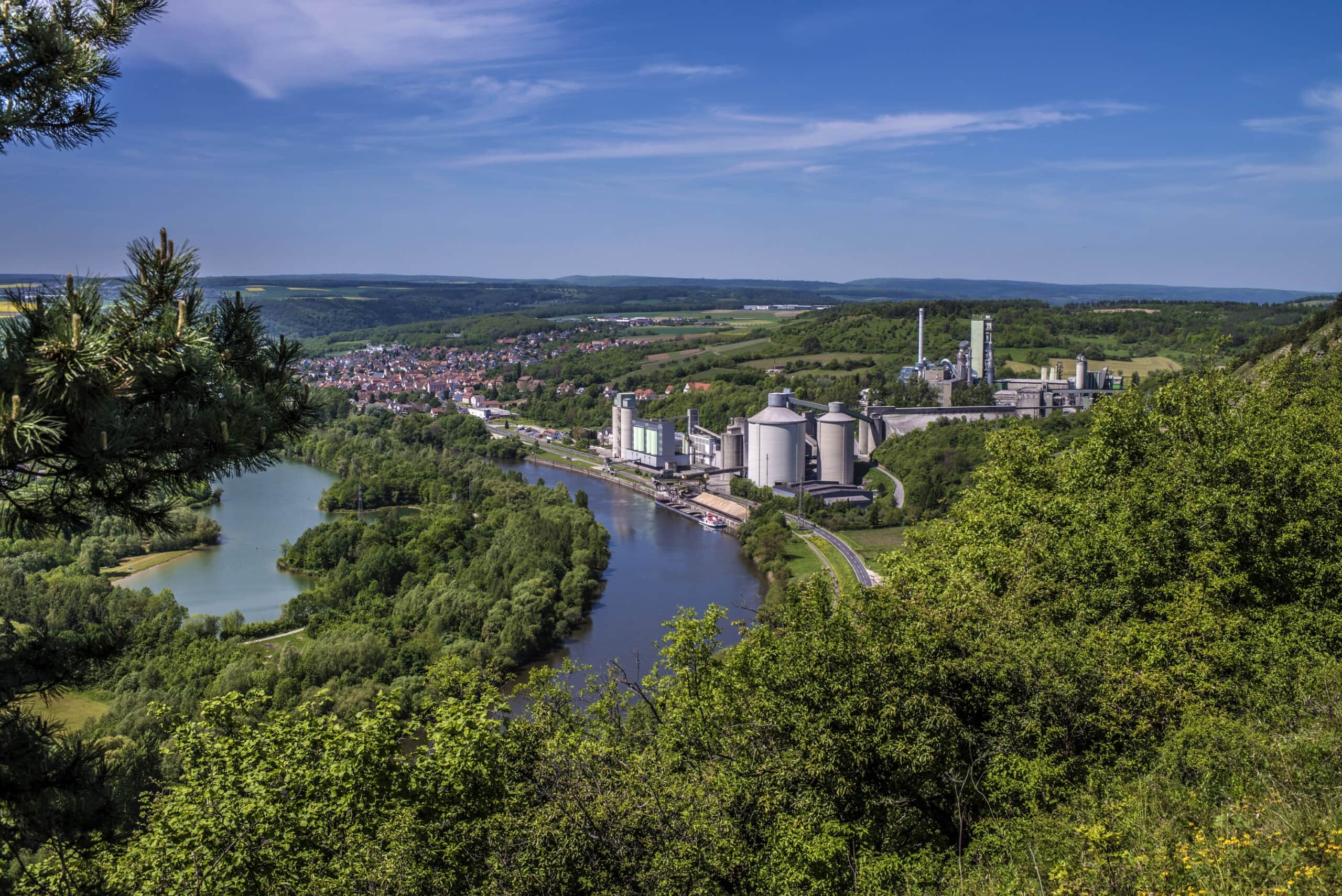 German building materials manufacturer Heidelberg Materials aims to become the most sustainable company in its sector and is also using biogas trucks to achieve this. Source: Heidelberg Cement/Steffen Fuchs
German building materials manufacturer Heidelberg Materials aims to become the most sustainable company in its sector and is also using biogas trucks to achieve this. Source: Heidelberg Cement/Steffen Fuchs
You might also be interested in
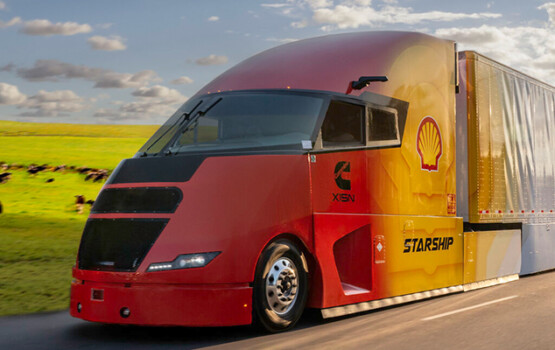
Shell Starship on record hunt
